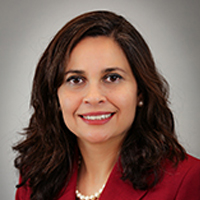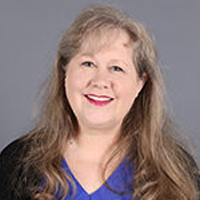As a Technical Assistance Provider for the Region IV Public Health Training Center, the J.W. Fanning Institute for Leadership Development at the University of Georgia will develop and implement leadership Institutes for public health providers from Region IV states and tribal health departments.

|
Carolina Darbisi, PhD
Assistant Director and Senior Public Service Associate
At the Fanning Institute, Carolina’s work focuses on designing innovative leadership programs to meet the needs of particular populations such as women, public health professionals, Latino and migrant groups. She designs and conducts applied research projects, principally in the form of program evaluation and needs assessment. In addition, as Assistant Director for Research and Evaluation, she provides leadership to the development and implementation of activities related to the strategic goal of continuous improvement, builds capacity among faculty to incorporate data-driven decision making and sets a clear vision for Fanning’s research and evaluation priorities to demonstrate the impact of leadership development.
Having joined the Fanning Institute in 2008, Carolina has more than 17 years of professional experience in leadership development, adult learning and nonprofit management with an extensive knowledge of Georgia and its needs; in particular, how the demographic changes influence the design, outreach and delivery of programs and initiatives across multiple communities.
|
|

|
Brandy Brown Walker, PhD
Public Service Associate
Dr. Brandy Walker’s expertise is in the design, development and implementation of leadership programming, with an emphasis on community engagement, conflict management, difficult conversations and dialogue. She holds a Ph.D. in Learning, Design, and Technology from the College of Education at the University of Georgia and is a leader in online and virtual program development and delivery. Dr. Walker specializes in programs that have a broad reach nationally and internationally. She has led leadership development programs for public health professionals across the United States and produced a 6-part series podcast entitled “Adaptive Leadership for Public Health.”
Internationally, Dr. Walker leads two U.S. Department of State projects focusing on civic engagement leadership across sub-Saharan Africa. The first is the Mandela Washington Fellowship, a summer residential intensive leadership and civic engagement program as part of the Young African Leadership Initiative and the second is the virtual African Civic Engagement Academy (ACEA), a U.S. Department of State-sponsored program unique to the University of Georgia. The ACEA program launched in 2021, reaching over 4,000 enrolled participants across sub-Saharan Africa.
Additionally, Dr. Walker teaches an interdisciplinary graduate course on community-engaged research methods. She works with Q-methodology personality and risk assessments, and enjoys collaborating with academic faculty on community-engaged projects.
|





